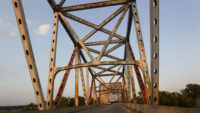In the latest turn in a multi-billion-dollar hostile takeover saga with potential global impact, French water and waste services management giant Veolia Environnement SA said March 11 that its target, the smaller but still sizable Paris-based rival Suez SA, could retain its France-based operations.
The two firms are locked in a months-long buyout dispute that ramped up in February after Veolia made the $13.1-billion hostile bid to buy Suez to create a even larger global giant, and, as a rare business strategy in Europe, has become a government challenge in France.
Veolia is the world's largest water management services provider, operating in close to 50 countries with nearly 179,000 employees worldwide.
Suez is the largest in providing private water management services. Its North American unit, based in Paramus, N.J., ranks 11th on ENR's Top 200 Environmental Firms list, reporting $1.1 billion in 2019 revenue.
Veolia Chairman and CEO Antoine Frerot told a conference call that the firm would not change its takeover bid for Suez, as the latter set as a condition for talks. But Veolia confirmed in a statement that it would sell French operations to interested investor Meridiam, which would keep them under the Suez brand with more than 25,000 employees
Veolia's offer to acquire the Suez international units depends on the latter's agreement not to sell strategic assets in Australia and Britain.
With the the latest offer, Veolia is "preserving jobs and competition in France," it said, which "represents a balanced compromise that would accelerate the inevitable merger between the two groups."
In a response, Suez said the Veolia new offer still “lacks seriousness” because it would deter innovation and growth.
The Suez board had formally rejectied the offer on Feb. 26 as too low and not providing enough clear benefits.
Suez CFO Julian Waldron told Financial Times that the Veolia offer "was based on flawed assumptions" and that benefits of a link "were not reflected" in the offer. The two firms have not spoken since early February before Veolia's hostile bid.
A French commercial court ruled last month that it did not have jurisdiction to halt the transaction.
Veolia's Frerot said he "would like to be able to discuss" the deal with the Suez board. "We can be our own negotiators.” The dispute could become a major issue at the Suez shareholder meeting set for spring.
The deal also would be subject to expected anti-trust review in some countries where the two firms operate due to the combined size.
Veolia said its revenue was up 0.9% in fourth quarter of 2020, compared to losses from the COVID-19 pandemic in the previous three quarters. Net earnings in the quarter rose 4.2%, compared to just a 1.7% gain in the third quarter, it said.
The company noted that in 2021, it expects sales to exceed the 2019 level, which was 27.2 billion euros.
Canada Energy Infrastructure Battle
Meanwhile, in Canada, a hostile bid by Brookfield Infrastructure Partners LP, a Toronto infrastructure asset management firm, for Inter Pipeline, which would take the Calgary natural gas extractor-transporter private, also remains in play.
The two companies are now haggling over the $5.66 billion offer/
Whether Inter Pipeline will agree to sell to Brookfield remains an open question, with the company on March 9 advising shareholders ro reject the offer, said Canada's Globe and Mail publication, and previously announcing a “strategic review” of its options after the “unsolicited offer” from Brookfield.
That might mean moving forward with sale of the firm, which also could include the sale of Inter-Pipeline's C$4-billion petrochemical plant complex hear Edmonton, its largest-ever capital investment, which is several months behind schedule and C$500 million over budget because of the pandemic.
Market concern about profitability of the project, which would turn propane from Alberta into polypropylene pellets for manufacturing, is another big risk.
CEO Chris Bayle told investors on Feb. 19 that "substantial mechanical completion" of the facility is expected in May, with full completion by year end and commissioning in early 2022.
"We remain engaged in a process to secure a partner for a material interest in that project, which is expected to conclude in the first half of 2021," he said. "As we have stated in the past, we remain fully prepared to execute [the project] on a standalone basis."
If Brookfield prevails, the infrastructure investor could also take a close look at buying the Trans Mountain oil pipeline project, which now is owned by the Canadian government, and recently restarted construction with an estimated 7,000-person workforce after a two-month safety review, according to analysts.
The Biden Administration’s cancellation of the Keystone XL pipeline may have increased the value of the Trans Mountain line, however, by reducing potential export outlets for Canadian oil, said Patrick Kenny, an analyst at National Bank Financial.
“You are looking at a 20-year contract underpinning a pretty high-quality asset that is really the only export pipeline to the West Coast,” Kenny said. “There is strategic value in that as well if the number makes sense.”
Brookfield is also seen as a potential buyer for other oil assets in western Canada, which have taken a hit in the wake of the pandemic and the fossil fuel demand drop.







Post a comment to this article
Report Abusive Comment